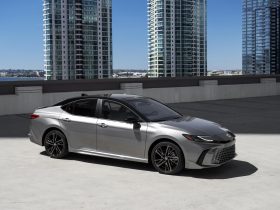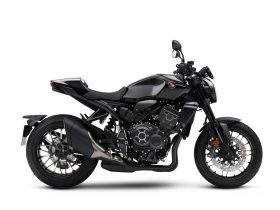Owning a motorcycle is a big responsibility, and it requires a lot of dedication to keep it in a good condition so it can last you a lifetime. Here are some of the most important aspects every beginner should know about motorcycles.
Which Types Are There?
If you’ve always wanted to soar on the open road, but you didn’t have the type of motorcycle you want quite figured out yet, look no further. The most common motorcycle types are standard, cruiser, sportbike, touring bike, and off-road bikes.
- Standard motorcycles are the common favorite because of their simple design, and neutral ergonomics. It’s appropriate for beginners because it’s not too big.
- Cruisers (choppers) have a lower seat height which makes them a good “cruising around” motorcycle. They have a lot of accessories which makes them great for traveling.
- Sportbikes are good if you’re looking for speed and agility to carve some corners while on the road. The seat is pretty high so it might not be suitable for shorter riders.
- Touring bikes are larger than most other types, and they are mostly built to support long, cross-country road trips.
- Off-road bikes are pretty self-explanatory. If you’re looking for some dirt action, this is the type for you.
Think about what you’re really after so you would pick the right type of motorcycle for yourself.
Maintenance
Many motorcycle guides offer thorough insight into every single aspect of owning a motorcycle, except the cost of maintaining one in the proper state. Motorcycle maintenance can be broken down into two parts, standard, scheduled maintenance, and unforeseen maintenance. As the experts from timeless2wheels.com regular maintenance should be performed according to the manufacturer’s recommendations. But bear in mind that new motorcycle users may need to change certain parts such as clutches and brake pads more quickly than the more experienced riders.
Additional costs for new riders can come as a result of their motorcycle falling such as damage to mirrors and other bike parts that will need to be replaced. Another considerable expense to consider is the tires. How often you’ll need to change them will depend on how aggressively you ride, the terrain you ride on, and the average temperature of the surface. If you can change the tires by yourself, the costs will be a little lower, if not, you’ll be in for a treat.
Riding Gear
Owning a motorcycle without the basic riding gear will leave you unable to ride it at all. A very well established philosophy among the most seasoned riders is to have all the gear, all the time. This will ensure proper safety for you in case anything should happen on the road. The riding gear you should always wear consists of a helmet, motorcycle gloves, jacket and pants, boots, and a neck brace.
Helmets should have a firm, full contact with your head, and their safety rating should be in accordance with all the local requirements. They just might be the most important part of your riding gear. Riding gloves can protect your hands from any damage if you fall because the hands are the first that hit the ground. Jackets, pants, and boots should have protective padding built in. Boots should be small and light so you will have the most comfort and the most feel of your brake and shift lever.
Insurance and Licensing
It should go without saying that anyone intent on riding a motorcycle knows they need to have an official motorcycle license. This license can be obtained from any local DMV so they could legally (and safely) ride a motorcycle. However, licensing isn’t important only for legal reasons. Most of the license procedures will have a couple of thorough tests consisting of a written test, and riding skills. All of these tests are necessary to ensure the safety of the driver and everyone else on the road.
Before anyone purchases a motorcycle they should be aware of the specific requirements that are applicable in their state, and also of the waiting time needed to get tested, which can be up to several months! Another important aspect to consider is motorcycle insurance. Most countries around the world require it just like regular cars. This type of insurance doesn’t just offer legal protection, it also protects you with sufficient medical insurance, and it allows you to repair your motorcycle later on.
With these beginner tips and information in mind, be sure to think carefully about whether you want to own a motorcycle, and if you’ve already made up your mind, it can help you pick the right type, and know all the aspects that go with it.










